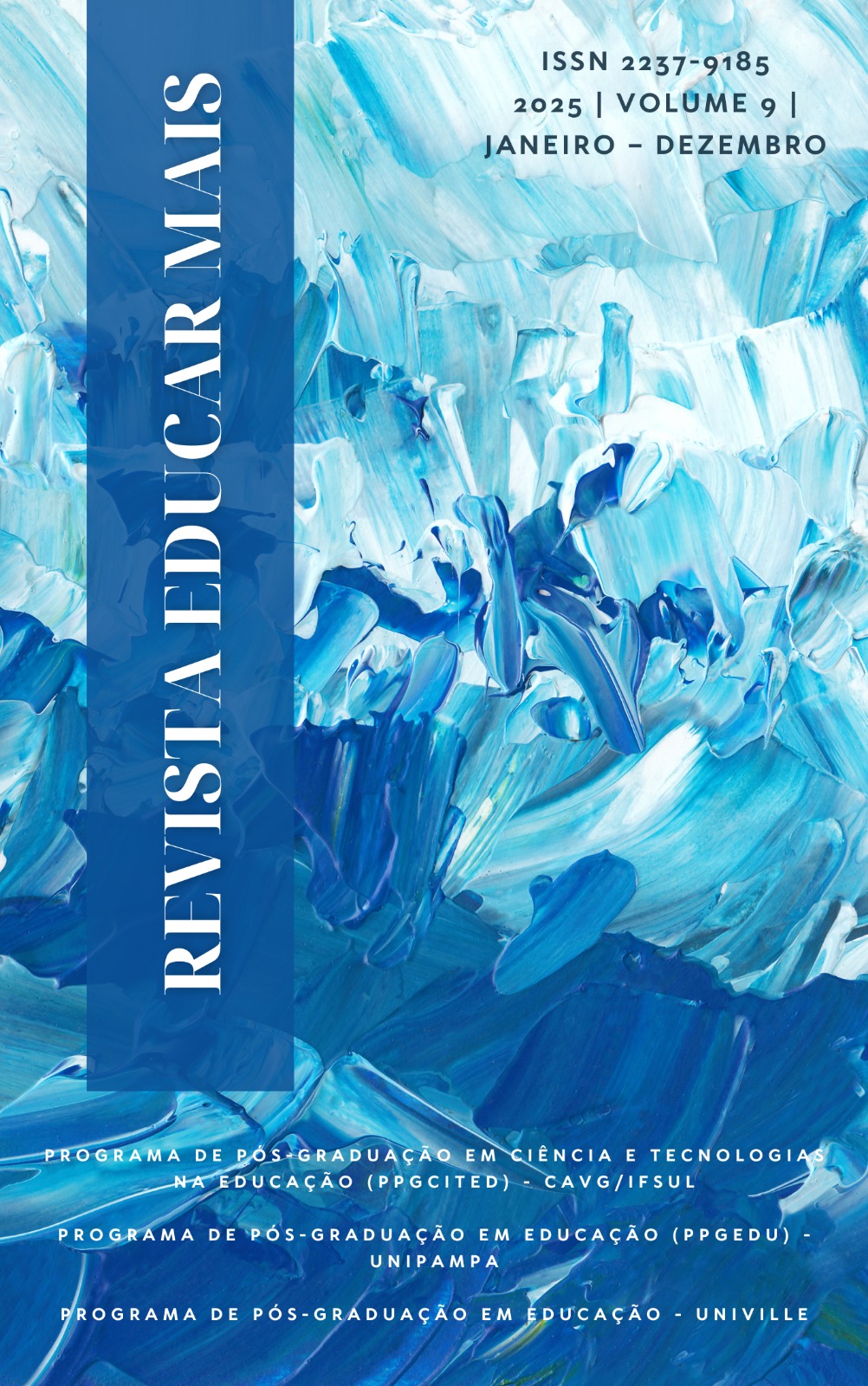Education as the Practice of Freedom by Paulo Freire
DOI:
https://doi.org/10.15536/reducarmais.9.2025.4245Keywords:
Paulo Freire, Democracy, Adult literacy, Popular education, DialogueAbstract
Education as a Practice of Freedom is the first book written by Paulo Freire. The work, which the author calls an essay, is theoretically grounded in Freire's readings and studies, drawing from the most profound and authoritative sources of philosophy and educational theories. However, the text is not composed solely of theories. Freire was a man of the people and fought for popular emergence, for the possibility of ordinary people having the freedom and critical thinking to at least manage their own lives. Therefore, the book reflects the author's experience in countless popular literacy processes, as he knew this was a path to awareness of the real situation experienced by literacy students. The successful application of his method in the city of Angicos, Rio Grande do Norte, in 1963 enabled 300 sugarcane cutters to learn to read and write in 45 days. President João Goulart, at the time, approved the replication of the method throughout Brazil. Work began in January 1964, but was interrupted while still in the organizational phase by the coup d'état of March 31 of that year. Considered subversive, Paulo Freire was arrested and subsequently exiled. It was precisely this exile that allowed him to organize his ideas and writings, producing the book in question in Chile. In its four chapters, Freire begins by addressing important and fundamental concepts that permeate the entire work. He then presents a historical explanation of the Brazilian reality that highlights our lack of democratic experience. He then exposes the challenge and need for a critical and liberating education—an education that, above all, is an act of love and, therefore, an act of courage. In the final chapter, Freire presents his method for teaching adult literacy. The following text is a compilation of the author's ideas expressed in this work. It is not a review, as it will not provide a critical analysis, but merely an effort to organize the concepts presented by Freire. Obviously, a deeper understanding requires a careful and enjoyable reading of the book in its entirety.
Downloads
References
FREIRE, Paulo. Educação como Prática da Liberdade. Rio de Janeiro: Paz e Terra, 1967.
FREIRE, Paulo. Pedagogia da Esperança: um encontro com a pedagogia do oprimido. 32 ed. Rio de Janeiro: Paz e Terra, 2022.
Downloads
Published
How to Cite
Issue
Section
License
Copyright (c) 2025 Cristiano da Silva Buss

This work is licensed under a Creative Commons Attribution-NonCommercial 4.0 International License.
DECLARATION OF RESPONSIBILITY: I hereby certify that I partially or fully participated in the conception of the work, that I did not hide any links or financial agreements between the authors and companies that may be interested in this article publication. I certify that the text is original and that the work, partially or fully, or any other work with a substantially similar content written by me, was not sent to any other journal and it will not be send while my submission is being considered by Revista Educar Mais, whether in printed or electronic format.
The author responsible for the submission represents all the authors of the manuscript and, when sending the article to the journal, guarantees s/he has obtained the permission to do so, as well as s/he guarantees the article does not infringe upon anyone’s copyright nor violate any proprietary rights. The journal is not responsible for the opinions expressed.
Revista Educar Mais is Open Access, does not charge any fees, whether for submission or article processing. The journal adopts Budapest Open Access Initiative (BOAI)’s definition, i.e., any users are permitted to read, download, copy, distribute, print, search and link to the full texts of these articles.
All the articles are published under the Creative Commons Atribuição-NãoComercial 4.0 Internacional license. The authors keep the copyright of their production. That way, they must be contacted directly if there is any interest in commercial use of their work.
















